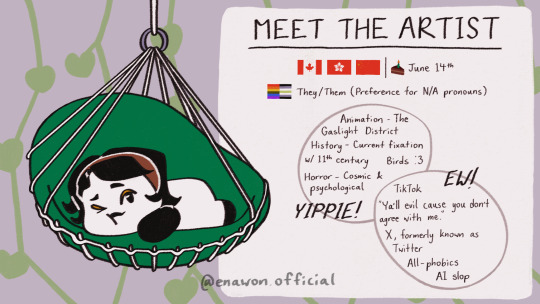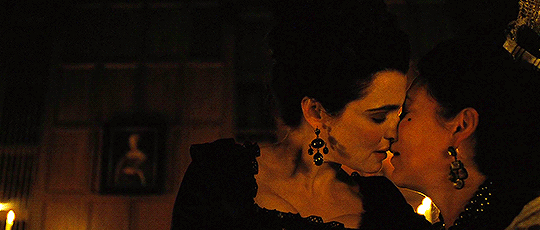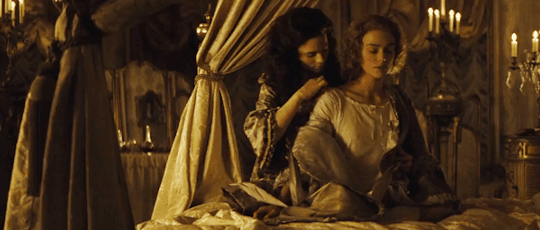22 | Agender (They/them - Preference for no pronouns) | Variety blog of @enawon.official on Instagram and Enawon on AO3
Don't wanna be here? Send us removal request.
Text
Bro thinks he won the life lottery by being in a position of power that makes him bank (He's just a replaceable dumbass goon for a manmade system that causes so much suffering on an incomprehensible scale.)
it is cute to watch USAmericans celebrate Brian Thompson’s assassination (CEO of United Healthcare) but I think it also highlights a certain ignorance and false class consciousness among the country. I’m specifically referencing this smug fixation on the fact that the investors had their meeting without him anyway and that they posted his job online already, and how there is this sort of smug “hahaha they don’t care about you either!” ouroboros-esque consumed-by-your-own-labyrinth attitude of righteous self-satisfaction and I feel like the point is going over people’s head.
No CEO of a publicly traded company really thinks they are that important, and it is extremely obvious to them how replaceable and at the mercy of the shareholders and board of directors they are. actually, it is this structure and system that guarantees the most ruthless profiteers to become CEOs, because the owner class of the company has made being a ruthless profiteer part of the job description because CEOs have a fiduciary obligation to the owners to solely prioritize profit. it’s literally the law that the only thing they are to do is create profit for shareholders.
The CEO is a tool which the owner class uses to facilitate company operations, no more. Literally they are a mask to hold up in front of themselves. A prop.
Understand that the CEO dying is the point. He took the bullet, the blame, the conflagration. His purpose is fulfilled in the eyes of the faceless diffusions of power within the company. Now, get another. And seemingly the actual controllers - the owners - remain anonymous and safe.
These people are not the ruling class - they are the lowest possible rung of it. They are the vanguard for the ruling class. These are celebrities, CEOs, the public faces of the ruling class which direct resentment toward themselves and save their bosses from the fire. They exist to absorb the impact. And this is how nothing changes, because as people joke about Brian Thompson online they participate within the very safety-valve that the owner class has put in place to preserve itself. Yet seemingly it feels radical and fun and transgressive to make fun of it. Another example of how co-opting dissent is one of the primary and greatest tools the ruling class has to maintain itself.
2K notes
·
View notes
Text

ROBERT: Oh, so now that mother's dead you want to apologize to me? To beg of me to stay!?
WILLIAM: N-no, plea-
ROBERT: (Hissing) -To Hell with you!
#lsdoem#robert curthose#william the conqueror#inspiration#Instagram#robert's justifiable crashout lol
0 notes
Text
instagram
You are sprawled out on the concrete floor.
It seems that nobody in the warehouse has noticed your stillness for some hours now, nor the moment you clawed at your heart when it seezed. Hell, not one person stopped you from downing 4 Monsters during your non-existent lunch break to keep yourself from collapsing earlier that day.
Even if they did noticed, they were too busy working themselves to the bone to pay for one meager instant ramen for tomorrow's dinner.
Soon, the packages you were in charge of begin to pile up at your coworkers' stations, forcing them to work even harder for nothing. Your slacking pisses them off enough that one of them calls in the shitty manager to give you a mouthful, along with a further decrease in salary that was definitely too low to be legal in the first place.
Upon finding your body, the old man demands you to get up, going on a long diatribe about "FOLKS FROM YOUR GODDAMN GENERATION DON'T KNOW WHAT HARDWORK MEANS!"
He only makes the horrifying discovery of your death after kicking your broken corpse to vent out his frustrations.
When news of your death eventually reaches Silicon Valley, the billionaire that owns the company you worked for will begin his PR campaign.
He will claim to be shocked about the incident, that the company truly cares about their employees and treats every member as family.
He will tell the media that an internal investigation will be conducted; that it proved that no one was at fault; that he will close down the warehouse out of respect for you and your family.
With nothing to your name for your loved ones to inherit and cherish, the owner will pay for your funeral out of pocket.
And it will still not be enough to cover everything.
This outcome is inevitable, and the only ones who could truly stop it have already signed an NDA when they first started working for that billionaire bastard.
As your manager frantically calls for help, and your coworkers begin to gather around out of morbid curiosity, the System acknowledges your sacrifice, an act It has no shame in giving zero fucks about.
You are just tiny a cell in Its body that completed cell turnover. In no time, your position will be filled in by fresh blood.
The System will outlast you, and there's nothing you can do about it.
0 notes
Text
William to Matilda every time they reincarnate in a new life cycle:

0 notes
Text
UP TO DATE DEVELOPMENT POSTS FOR LONG LIVE THE BRAZEN BULL & LE SANC D'OR EST MOL
Robert's relationship with his father
Robert's last words with Henry in his first life
William's punishment
(Not part of main narrative) Herleva and Robert the Magnificent's not so great first impressions of each other
Cross posting from Instagram:


🔞CONTENT WARNING🔞
The following account depicts themes related to mental illness, all types of violence and gore. MINORS BEGONE!
2 notes
·
View notes
Text
so it’s rumored that hayden might be cast in a period film and play william the conqueror and as a history buff, MATILDA (his wife) AND WILLIAM WERE ACTUALLY HELLA ROMANTIC FOR THE TIME PERIOD, LIKE WILLIAM WAS A SIMP, AND I AM DELUSIONAL ASF, BUT THEIR RELATIONSHIP IS HOW VADERDALA COULDVE BEEN AND NOW IM GOING CRAZY
88 notes
·
View notes
Text
Cross-posting from Instagram:

i dreamt of a place
where smoke smothered the sky
gore gurgled in streams
and ash festered in fields.
in the iris of the sun
hung a saint who made judgment of me
i tried to speak with him
but he was too far for me to reach.
this saint does not forgive.
---
Made a visual development sketch for my animated series concept.
Going to be changing the title of my story somewhere down the line.
STORY CONTEXT
William II of Normandy/the Conqueror dreams of Harold Godwinson.
#lsdoem#horror#tragedy#11th century#high medieval#medieval#william the conqueror#harold godwinson#visual development#animated series concept#animation#digital art#artists on tumblr
1 note
·
View note
Text
youtube
What if I made this horrifying by having William face judgement by Harold Godwinson? :3
#lsdoem#11th century#william the conqueror#horror#high medieval#inspiration#medieval#harold godwinson#house of godwin#Youtube
1 note
·
View note
Text
“This was an age which considered that the outcome of battle was God’s will, so that the seizure of Jerusalem after a long and bitter campaign was seen as part of God’s continuing plan for mankind. As a result, crusading received a lasting and prominent place in the western religious consciousness. In practical terms this created a profound sense of obligation to support and assist the Latin states of the Middle East founded by the success of the First Crusade.”
John France, Hattin, Greatest Battles in History, Oxford University Press, 2015, p.23
4 notes
·
View notes
Text

POV: You're flirting with the daughter of your chamberlain (Your "humble bragging" is grinding her gears).
First beta sketch of William the Conqueror's mother Herleva/Arlette/Arlotte/idfk.
STORY CONTEXT
Herleva is a cynical woman wary of the unruly noblemen of Normandy. While being the daughter of Robert I's chamberlain has granted her more protection than her lower class counterparts, this status also makes her politically desirable to those she despises the most. Her explosive rejections of these men have given her the reputation of an "insatiable wench" within social circles of the rich and powerful.
Unbothered by his peers' words, the lustful Duke harasses Herleva with riches and attention, each advance being rejected more thoroughly than the last time.
Eventually, when his poor decisions threaten to have the realm excommunicated from Rome, Robert runs to Herleva in the hopes she will finally accept and comfort him in these trying times.
Reaching her breaking point, Herleva proudly proclaims that she would rather be tortured for treason then sleep with a man who put his vices before his lands, that she can't expect a man like Robert to love and produce good heirs if he can't even manage something as large as Normandy.
1 note
·
View note
Text
https://archiveofourown.org/works/60803446/chapters/163772956
Just uploaded a new chapter to my fic ( • u • )
Go read it if you like.
0 notes
Text



Cross posting from my Insta.
Cardboard maquette from my university animation portfolio related to LE SANC D'OR EST MOL.
STORY CONTEXT
After succumbing to his wounds sustained from the Battle of Mantes, William of Normandy finds himself in the purgatory recreation of Falaise Castle along with remnants of his family. Having not seen Robert Curthose come out of his sleeping chamber for centuries, William attempts to get through to his son with a letter. However, William fails to find the right words to say, and gives up on any chances for reconciliation.
#lsdoem#11th century#high medieval#medieval#william the conqueror#robert curthose#house of normandy#artists on tumblr#traditional art#maquette
8 notes
·
View notes
Text

Old (But revised) sketch of William the Conqueror's face, front view.
#lsdoem#william the conqueror#traditional drawing#sketch#concept art#artists on tumblr#11th century#medieval#normandy#house of normandy
6 notes
·
View notes
Text
Some beta sketches of Matilda of Flanders for my animated series.

Close up of her face.

#lsdoem#matilda of flanders#digital art#concept art#sketch#artists on tumblr#11th century#medieval#flanders#house of flanders
1 note
·
View note
Text

Billy trying to reconcile his fucked-up experiences and values of 11th century Europe while trying to live a "normal" life in 21st century Canada.
0 notes
Text
Writing Romance: Courting

Prior to the 20th century, most couples engaged in courting politics to find their partners, and there were a lot of rules about how to properly court your intended partner. So I figured I’d put out a guide to proper romancing etiquette for those setting their stories in more antiquated settings. But a lot of these courtship practices don’t work as well for same-sex relationships. So, I’ll go through some of the rules for courtship that apply to any story that wants to use courting romances, then I’ll explore ways this could work for a queer couple.

Gender Dynamics in Queer Courtships
Gender is a HUGE aspect of courtship, as the expectations of men and women were starkly different. This leaves queer couples with two choices: either conform to the gender roles, or make the roles more generalized that both parties are expected to uphold. Whichever route you take, be consistent. Not just with queer couples but heterosexual ones as well. If a lesbian barmaid can chase skirts, why can’t a heterosexual seamstress chase chaps?
If you choose to lean into gender roles and active vs passive roles in courtship, I believe it is best to leave it that the one of higher social status takes on the role of the female, as it would be uncouth for a Duke to be chasing lowly Viscounts. Those looking for a higher status husband should be the one working to win the Duke’s affections. While one could argue that the one of higher status should be the active pursuer, the thought of a queen chasing skirts simply fails to capture the regal dignity of the position when we think on it. It seems more in line with the properness and decorum of the era to have the elite have the suitors come to them.
Even if you do away with the gender roles in favor of gender equality in relationships, social status and rank would still be enough to impact the active vs passive roles. A prince looking for a spouse will always be more passive, while his knights, dukes, and counts vie for his affections. Meanwhile, a lowly Baron will almost always be in pursuit of a match. This follows the Order of Precedence, a real life rule of etiquette that states that those of lower status are the ones introduced to someone of higher status. So before a Baron can speak freely with a Prince, someone must introduce the Baron to the Prince and never the other way around. If the Baron is being introduced to a group, they will be introduced in ascending order of rank. The Baron will first be introduced to the Count, then the Duke, and then the Prince. This is why in many court scenes, someone will introduce a character to the king before they speak to one another.
But what if they’re of equal status? What happens when a prince is seeking another prince to be his husband? While they have equal titles, a prince of a tiny, less powerful kingdom is more likely be the pursuer to the prince of a bigger, wealthier kingdom. Likewise, in a relationship between two Dukes, the one who is higher in the line of succession to the crown would be the one to be pursued by the one lower down the line of succession. TL;DR: Whoever has the bigger house is the one getting pursued by suitors.

Presenting at Court
When a young gentleman or lady had come of courting and marrying age, their parents would petition to have them present at court, though people could also be recommended by other nobility. This was an effective way for some to social climb, being recommended by someone of much higher status and impeccable reputation can skyrocket their child into an advantageous position. These events would be held at the palace multiple times per year, and were invite only. The Lord Chamberlain was in charge of going over the guest list with the utmost scrutiny, and nobody would be permitted who did not have a pristine and stainless record.
Men of good social standing would present at court at formal events called Levées. They would present before the King or Prince. In the event that there were two queens or otherwise no living males of the royal family, they might present before the highest ranking male in the line of succession, or otherwise just present before the Queen. In the Victorian Era, men wore buckled shoes and swords to both a Levée and a Presentation. They had to wear either court dress or a uniform. So, if he was a soldier, he might present at court wearing his finest military dress uniform.
Presenting at court for girls were much less imaginative, only being called a Presentation. They were expected to drag long trains behind them, to bow and address the queen flawlessly, and then leave the room without fumbling over her dress or shoes. Like with the Levées for the gentlemen, these events would be held multiple times per year, and multiple girls would present on the same day, meaning that all of the girls would be compared. The better she performs, the more desirable she will be. Some men might be charmed by a little clumsiness, but it was generally seen as extremely important for a girl to make a great first impression on the court as a lady of courting and marrying age. This is also why the presentation itself is rather short. There’s a lot of girls to get through, and the queen’s a busy lady.
Someone who was already of marrying age but marries into higher status would be expected to present at court after the wedding. As a king and queen had the power to bestow titles on people at their leisure, it was not impossible for an older married woman to be made a high enough status to make her formal debut at court, and older women had different expectations when making their debut, such as styling themselves differently, and wearing different colors. Thus if, for example, a lowly washer woman saved a nobleman’s son from drowning, she might be rewarded by being recommended for a title like Lady or Baroness and being allowed to present at court. Regardless of age, the presentation mostly serves as an introduction of a new face at court to the rest of high society.

The Rules for Men
Men were encouraged not to flirt with everyone they found attractive, as being too friendly might earn them a reputation that hurts their social image. Guidelines to courtship from the Victorian Era makes it clear to young men that not every girl will be interested in his pursuit of her, and that he should take a lack of positive response to any advances as his cue to move on, lest he embarrass himself or his family.
Never allow a woman to be uncertain of your feelings and intentions. Women were permitted some leeway with acting coy, but for a man to toy with a woman’s affections was seen as improper. Once a man is aware a woman mistakes his attention for affection, he is to quickly, yet politely, lay bare his true feelings. In a similar vein, a man should never make any declaration in jest, whether expressing love or proposing marriage, any attempt to make such grand declarations as a jest does grave disservice to the woman, and will earn him great dissent and contempt from those of good breeding and high social standing. This second rule also extends to the fairer sex, and is just universally sound advice when navigating romantic entanglements.
A man must put out his cigar in the company of women, which also meant that if a woman approaches him to engage him in conversation, he must discard it, regardless of how expensive it was.
When greeting a woman in public, a man should tip his cap in a polite manner, though if she stops to talk to him, she will extend her hand to him. In this case, he must remove his hat with the hand farthest from her, and take her extended hand with the one closest to her. If they are well acquainted, he might bestow the back of her hand with a quick kiss before letting go of her hand. He would then be expected to walk with her as they converse. If he has somewhere to be or the conversation has reached a natural ending, he should politely excuse himself, and wait for her to say her farewells before he leaves her company. If he simply cannot stop to talk, he should make his urgency clear, and apologize before carrying on, still being sure to tip his hat in a show of politeness.

The Rules for Women
Accepting gifts from a suitor is dangerous. If a suitor brings you a gift and you accept it, it indicates that you are interested in their advances. Being too accepting can also cause a man to continue to shower you with gifts, which could be seen as greedy. If disinterested in the suitor, it is advised to decline his gift. However, it’s best to try and decline his gift in a courteous manner, as a calous decline will earn you a reputation for a foul temperament, which may discourage other suitors.
An unmarried woman should never be outside alone. She should always be in the company of a companion, chaperone, parent, or legal guardian. This is a means of protecting women from being set upon by unscrupulous men.
Even while courting one another, an unmarried woman should never be alone in the company of a man outside of her immediate family. This usually meant that any sort of date the pair might go on will always be supervised from afar by a parent or chaperone, such as a lady-in-waiting or a governess. The young couple would usually be left some leeway to conversate privately, so long as they were within clear eyesight of the woman’s caretakers, and close enough for them to step in should the man act dishonorably toward her.
A man will come to call upon a woman he is interested in pursuing, meaning that he will come to her house in order to pitch woo or charm her. This is to ensure she is in the safety and protection of her family, so as to prevent her from being done ill by the man where her family cannot protect her. As such, a woman would never call upon a man or go to his residence. In a queer relationship, this is simply swapped to the one of lower status coming to the house of the one of higher status. Although, due to the role of status, the suitor will require an invitation (either specific or open) to come a-courting on the object of their affections.
Women would often have a dance card which indicated who she intended to dance with at an upcoming ball. She’d save a dance for the host, and likely also her suitor. Any special guest of the ball would likely also be afforded a dance. If she has multiple suitors, she would be expected to dance with all of them, and not to spend her entire evening doting on only one of them. It was also seen as improper for her to dance too often with the same partner, regardless of whether she was looking for a spouse or not. If she was the guest of honor, it might be expected for her to share more than one dance with the host, possibly sharing the first and/or last dance with him to start or close out the night. Sometimes at dances, the guests would know the music selection and dances ahead of time, and women would have the music or dances on their dance cards. While I don’t know if it was done historically, I don’t think it would be too unorthodox for a man to write a woman ahead of a ball (assuming he’s familiar enough for such audacity) and request that she save a specific kind of dance for him. If his Waltz is shabby, but he does a marvelous Minuet, he’d want to be sure his dance with a possible match would be a dance he’s more proficient with. A lady might fill up her entire dance card ahead of time, but she’d more often than not leave a spot or two open to allow for more spontaneity. As dance cards were only used by women, I don’t know if they’d be used by gay men in courtship or not. Queer people at a ball however might wear something to indicate their preference in dance partner. A visual cue to let the gentlemen know that the Baroness of Arendale doesn’t have much interest in dancing with men.

Courting in Public
Courtship, especially among the upper class, was predominantly undergone during the Social Season, which in the UK ran from March until September, and included a wide variety of events and activities including balls, picnics, dinner parties, and sporting events. During the social season, every personage of noble blood would gather in a central location, usually the capital. These were not the only times during the year when people courted, it was more akin to a feeding frenzy for eligible bachelors, largely due to all of their marital options being assembled for the season, making it much easier to find someone to his liking.
It was wildly scandalous to show public displays of affection. That was to be reserved for private life. As such, suitors would instead exchange gifts, photographs or locks of hair instead of kissing or holding hands. For a queer relationship, it might be allowable for suitors to give one another their clothing, jewelry, weapons, or armor, either in their entirety or a particular piece of it. However the intimacy of sharing garments would likely be reserved for couples that have been courting for some time, and would be ill-advised as a first gift to one’s admirer.
At a ball or other such party, if someone catches your fancy but you’ve never met them before, it is impolite to speak to them until the host or hostess has formally introduced you to one another. Even if you dance with them, it is ill-mannered to speak to them during and after the dance if neither of you have been introduced to one another.
If someone insults your suitor, a gentleman should be ready to act the part of a knight and defend his lover’s honor. If his partner initiated the conflict, it is advised for a gentleman to apologize on their behalf, though not so meekly as to offend their lover or besmirch their honor. If another man is looking to start a quarrel, a gentleman should not return his hostilities, as a foul temper and lack of self-control is an indication of ill manners and poor breeding, bringing you down to the other man’s level.
A gentleman should always carry his lady’s luggage, and on the sidewalk, takes the side closest to the street to keep his lady’s dress from being splashed with mud or water, or to keep her safe should a wayward horse, carriage, or car veer off the street, it is more likely to strike him than her.
A couple talking in public must speak succinctly, poignantly, and softly. Long drawn-out conversations were best for private, whereas in public, it was unwise to spend one’s entire evening conversing with a single person, unless it is well-known the severity of their entanglement. It was considered ill-manner to speak excessively or too loudly as to disturb others.

Matchmaking and Gold-Digging
Due to eldest sons getting the entire inheritance of his father, women seeking to court would seek out eldest sons who would be coming into their family fortune, while sons left out of the inheritance would be more willing to marry below their station in pursuit of rich heiresses whose wealth would keep them in the lifestyle to which they have grown accustomed. Likewise in a queer relationship, wealth and power would likely effect the interests of relationships, and differences in inheritance laws might also change the power dynamics in courtships. If a daughter can inherit the full control of her father’s mercantile empire, she’s going to be fighting off second-born suitors with a stick, regardless of gender.
I mentioned above the Levées and Presentations that young nobles would go through when entering the public sphere of the court. Parents of other noble families would often be in attendance of these parties, and if a presenter impressed them, they may approach the parents and suggest a courtship between their children. This is less of an arranged marriage, and more the parents steering their children to give each other a chance. It’s much closer to playing matchmaker than paying 5 cows and a corn mill for someone’s daughter. The children could still decline the courtship out of lack of interest or an absence of chemistry, so long as they settled things politely.

While that was a lot of information, I do hope it is something you found helpful. Most of the rules are much harsher on upper class characters, but most people who write historical romances are more interested in the romance between the countess and the duke, rather than the washer woman and the fisherman. I will also admit this is not a flawless breakdown, as I could have easily missed something. Still, as someone who loves period dramas and historical costume, I couldn’t leave such a tantalizing topic untouched.
2K notes
·
View notes
